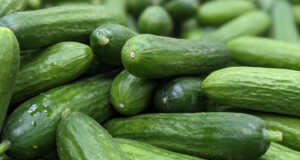People In France Are Being Asked To Eat More Traditional Cheeses As The Dairy Industry Struggles
The COVID-19 outbreak has affected many industries, including the dairy industry in France. That is why people in that country are being asked to eat more cheese because the sale of cheese has dropped more than 60%.
A press release, previously reported on by Insider, speaks about the French dairy industry (Terre de Lait), and some of the issues that cheesemakers are facing. After the press release was translated, they said that people have “shunned ‘pleasure’ foods-including their cheese platter.” They also talked about suppliers rushing to keep milk in the grocery stores but cheese is at a surplus because of the closure of restaurants and open-air markets.
Some of the traditional French cheeses that are mentioned in the release include Saint-Nectaire, Reblochon, Cantal, and Camembert, but there are others that are being affected. A campaign has been launched, #Fromagissons which is a contraction of “Fromage” and “Agissons,” which translates to “let’s act for cheese.”

The campaign would like French people to start purchasing more cheese to help dig the dairy farmers and traditional cheesemakers out of their struggling situation. They also want the dairy industry to work in unison to help keep the supply chain moving.
“It is all the women and men in the sector who can reorganize and work together so that France remains that of 1,000 cheeses,” the release said.
If they move forward with the plan to reopen markets on May 11 in France, it may reduce the issue. Then again, that is the same date that Michel Lacoste, president of CNAOL, the organization that represents 45 traditional dairy producers, said that the cheese supplies are set to expire.
“Two thousand tonnes of cheese were to leave our cellars in April, we still have 1,500. If they are not distributed before May 11, they will be out of date,” he said.
When speaking to the publication, Les Echos, Lacoste said that cheesemakers are looking to sell excess products “inexpensively in order to give them to the poor” and calling on people, in general, to purchase traditional cheeses from their local stores.












